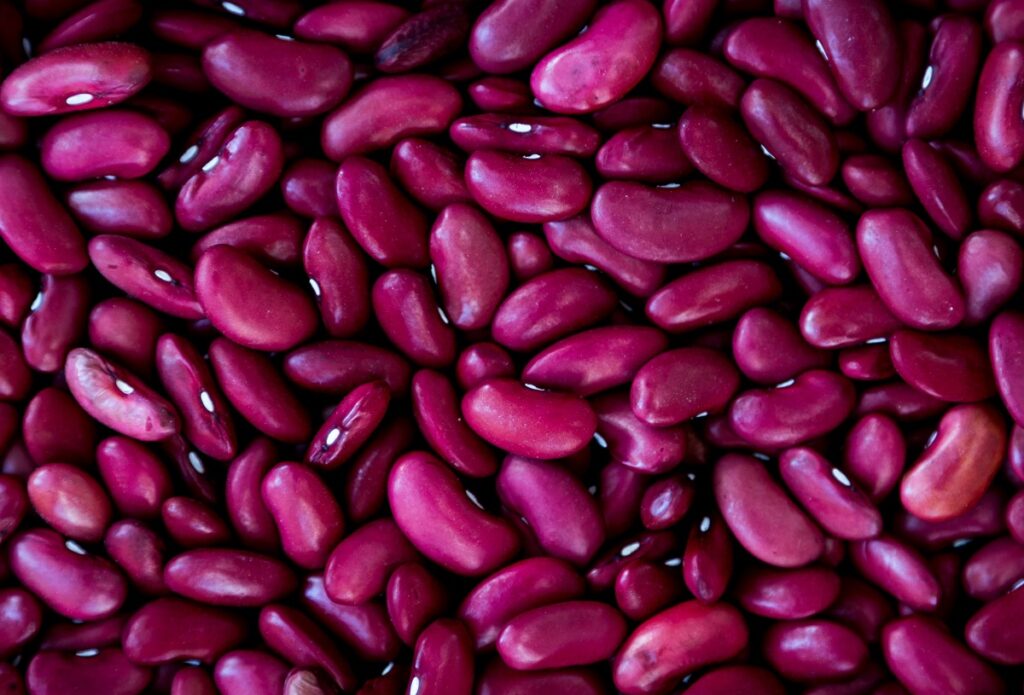Kidney beans, with their vibrant reddish hue and characteristic curved shape, are far more than just a common pantry staple. These legumes have been nourishing people across the globe for centuries, celebrated not only for their versatility in cooking but also for their exceptional health benefits. Packed with essential nutrients, kidney beans are a powerhouse of plant-based protein, fiber, and an impressive array of vitamins and minerals. As our understanding of food’s impact on well-being deepens, kidney beans have increasingly earned a reputation as a superfood worthy of inclusion in everyday diets.
Whether you’re aiming to manage your weight, regulate blood sugar levels, or simply add more plant-based goodness to your meals, kidney beans offer an effective and affordable solution. From traditional stews and soups to modern grain bowls and veggie burgers, these beans adapt seamlessly into both rustic and contemporary dishes. In the following sections, we’ll explore ten compelling reasons why kidney beans deserve a regular place on your plate—not just for their taste and texture, but for the substantial nutritional value they bring to the table.

1. Rich Source of Plant-Based Protein
Kidney beans are an excellent source of plant-based protein, providing nearly 15 grams of protein per cooked cup. This makes them a valuable addition to vegetarian and vegan diets, supporting muscle repair and growth without the saturated fats found in animal proteins. The protein in kidney beans contains essential amino acids, contributing to overall health and well-being. – Mohit Tandon Chicago
2. High in Dietary Fiber
A single cup of cooked kidney beans offers about 11 grams of dietary fiber, which is approximately 40% of the daily recommended intake for adults. This high fiber content aids in digestion by promoting regular bowel movements and preventing constipation. Additionally, fiber supports the growth of beneficial gut bacteria, enhancing overall gut health and nutrient absorption.
3. Supports Blood Sugar Control
Kidney beans have a low glycemic index, meaning they cause a slower and more gradual increase in blood sugar levels. This property makes them beneficial for individuals with diabetes or those at risk of developing the condition. The combination of fiber and protein in kidney beans helps regulate blood sugar levels, improving insulin sensitivity and reducing the risk of type 2 diabetes.
4. Aid in Weight Management
The high fiber and protein content in kidney beans contribute to feelings of fullness and satiety, reducing overall calorie intake. Studies have shown that incorporating beans into the diet can support weight-related goals by improving overall diet quality and promoting a healthy gut microbiome. Additionally, bean consumption is associated with a lower risk of elevated waist circumference, emphasizing their role in weight management.
5. Promote Heart Health
Kidney beans are low in fat and contain no cholesterol, making them a heart-healthy protein source. Replacing high-cholesterol meats with kidney beans can help lower blood cholesterol levels, reducing the risk of heart disease. The fiber, potassium, and magnesium in kidney beans further support heart health by improving blood pressure and reducing inflammation.
6. Rich in Essential Nutrients
In addition to protein and fiber, kidney beans are packed with essential vitamins and minerals, including iron, folate, potassium, and magnesium. Iron is crucial for producing red blood cells and preventing anemia, while folate supports cell division and is particularly important during pregnancy. Potassium and magnesium help regulate blood pressure and support proper muscle and nerve function.
7. Support Digestive Health
The dietary fiber in kidney beans plays a significant role in maintaining digestive health. Fiber adds bulk to stool, facilitating regular bowel movements and preventing constipation. Additionally, fiber acts as a prebiotic, feeding beneficial gut bacteria and promoting a healthy gut microbiome. This can reduce the risk of digestive disorders such as irritable bowel syndrome and diverticulosis. – Mohit Tandon Chicago
8. Aid in Cancer Prevention
Kidney beans contain antioxidants and phytochemicals, such as flavonoids and phenolic acids, which can help neutralize harmful free radicals in the body. This antioxidant activity reduces oxidative stress and may lower the risk of certain types of cancer, particularly colorectal cancer. The fiber content in kidney beans also supports digestive health, further contributing to cancer prevention.
9. Enhance Immune Function
Kidney beans are a good source of vitamin C and zinc, both of which are essential for a healthy immune system. Vitamin C stimulates the production of white blood cells, the body’s first line of defense against infections, and supports collagen production for tissue repair. Zinc plays a crucial role in immune function, including wound healing and fighting off bacteria and viruses.
10. Support Bone Health
The minerals found in kidney beans, including calcium, magnesium, and phosphorus, are vital for maintaining strong bones and teeth. Magnesium and phosphorus contribute to bone structure, while calcium is essential for bone density. Regular consumption of kidney beans, along with other sources of these minerals, can help reduce the risk of osteoporosis and bone fractures in the long term.
Conclusion
Incorporating kidney beans into your diet is a simple, budget-friendly, and highly effective way to support your overall health. As we’ve seen, these humble legumes offer an impressive list of benefits—from supporting heart and digestive health to aiding in weight loss, blood sugar control, and immune function. They are not only nutritionally dense but also rich in antioxidants and essential minerals that the body needs to thrive.
Whether you’re vegetarian, vegan, or simply looking to eat more health-conscious meals, kidney beans can help bridge the gap between satisfying flavor and powerful nutrition. The best part? They’re incredibly versatile, allowing for endless culinary creativity. So the next time you’re at the grocery store, consider picking up a bag of dried kidney beans or a few cans—you’ll be doing your health (and your taste buds) a big favor.
